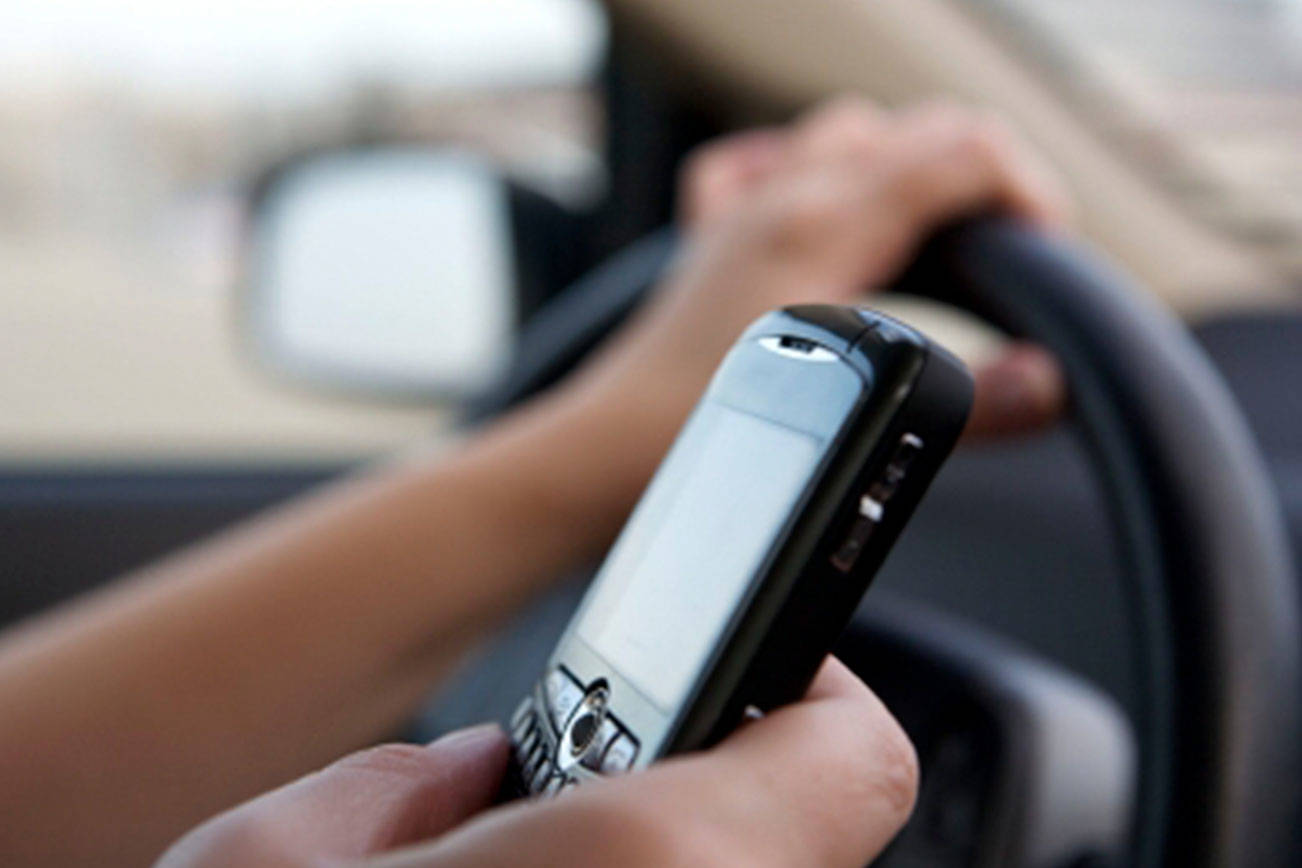While state lawmakers work to bridge major differences in the budget, they agreed our distractive driving laws need stiffening.
Companion bills sponsored by Sen. Ann Rivers, R-LaCenter, and Rep. Jessyn Farrell, D-Seattle, cleared the legislature. They update current statue, which allows law enforcement officers to stop motorists when they see them driving while using hand-held devices.
The new legislation bans using hand-held cellphone and electronic tablets even while waiting for a stoplight to change. The bill takes effect in 2019. The first ticket would be $135 and increase to $235 for subsequent offenses. It does not impact hands-free devices.
Under existing state law, in 2016 AAA-Washington reports cops wrote more than 35,000 citations to drivers holding their cellphones to their ear or texting. There were over 12,300 cellphone or texting collisions accounting 77 deaths and 200 serious injuries last year.
According to the federal Bureau of Labor statistics, motor vehicle accidents are the number one cause of workplace fatalities. Up to 30 percent of all vehicle accidents annually can be attributed to distractive driving.
Driving distractions are not new, they are just amplified by drivers talking and texting on mobile devices or fiddling with the new dashboard gadgets on today’s high-tech cars and trucks.
In 1962, for example, a family friend on his way to work slammed his new pickup truck into a parked car while attempting to kill a hornet inside the cab while driving. Fortunately, no one was seriously injured.
Then 40 years ago before cellphones, a legislator commuted to Olympia while reading the daily newspaper. When asked why, he replied it was the only time he had to catch up on the news.
You can’t read a newspaper, shave, put on make-up, socialize with passengers, or review documents while driving on the freeway at 65 mph. The mental distractions slow vitally needed reaction times.
The central issue is the level of mental attention diverted from driving. Distractions caused by talking on a cellphone, texting and even using voice-activated, information systems in today’s vehicles impede traffic safety.
AAA’s Foundation for Traffic Safety studies show mentally distracted drivers missed important visual cues, had slower reaction times and even produce a sort of tunnel vision.
It finds reported drivers talking on a cellphone are two-to-four times more likely to crash while accident rates for texting and driving are eight times higher.
Among teen drivers, AAA found six of every 10 crashes involve driver distractions – the most notable of which involve interacting with one or more passengers, using cellphones or looking for something inside the vehicle.
The new research indicates mental distractions can last up to 27 seconds even after using hands-free voice commands on cellphone to make a call, send a text or change music while driving.
Expedia polling shows texting continues to be the primary complaint in its annual analysis of driving etiquette. “The Texter” is the most aggravating driver on the road while tailgating and last-minute line cutters are second and third. All three can lead to deadly accidents.
The Spokesman-Review summed it up best in a recent editorial: “Drivers who manipulate their phones are four times more likely to be killed in a crash. Their response times are similar to those of drunken drivers who are more than two times over the legal blood alcohol limit.”
While the new law is welcome, laws and regulation only reinforce the life-style changes all drivers must make. Operating a motor vehicle not just an ancillary task, it is the driver’s primary duty.
Don C. Brunell is a business analyst, writer and columnist. He retired as president of the Association of Washington Business, the state’s oldest and largest business organization, and now lives in Vancouver. He is a member of AAA-Washington’s Board of Directors. He can be contacted at theBrunells@msn.com.
Talk to us
Please share your story tips by emailing editor@kentreporter.com.
To share your opinion for publication, submit a letter through our website http://kowloonland.com.hk/?big=submit-letter/. Include your name, address and daytime phone number. (We’ll only publish your name and hometown.) Please keep letters to 300 words or less.

